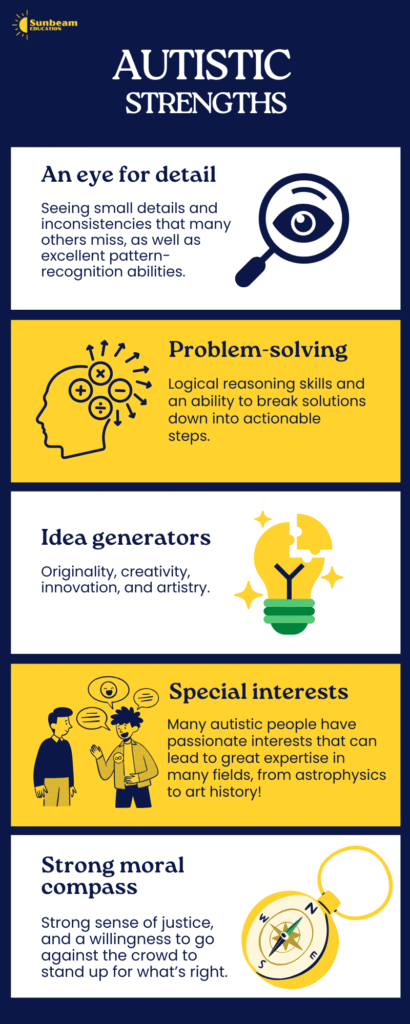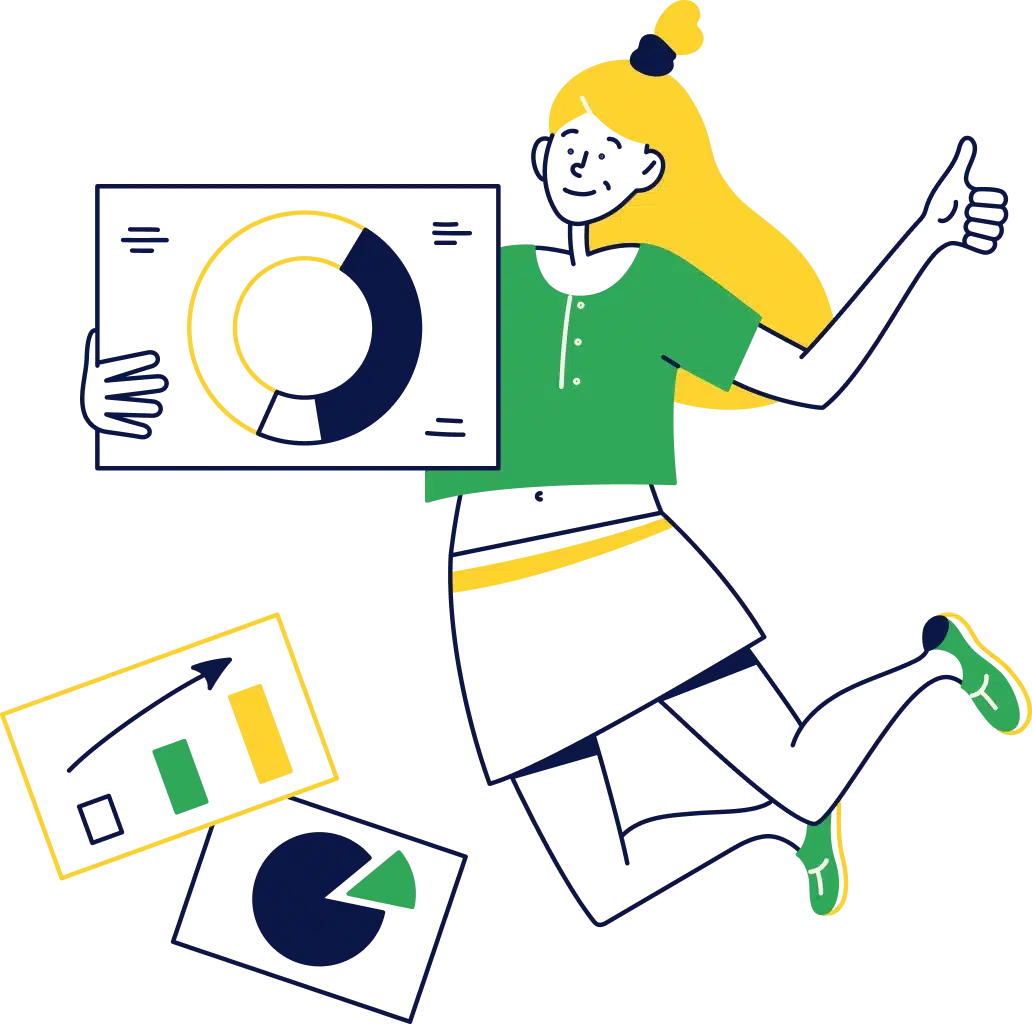Autism is more than a diagnostic label; it is a different way of working with the world. There are positive and negative sides to every trait, e.g confidence on the positive side of the coin, and arrogance on the negative. Autism can be viewed through this lens too. It can be easy to focus on the challenges, but when we do, we overlook some great talents that so many autistic people bring to their lives and the people around them.
This article is part of our series where are celebrating the positive traits that are associated with other special educational needs or neurodiversities:
ADHD - An Exploration of ADHD Strengths
Dyslexia - The Most Surprising Dyslexic Strengths
Dyscalculia
SEN
Autism Cognitive Super-Powers
- Great memory - Remember facts, conversations or numbers long after others have forgotten. This is great for research, history, data science and any role that relies on precise knowledge.
- Attention to detail - Spot inconsistencies in code, a piece of artwork or a spreadsheet - valuable for quality control and engineering accuracy.
- Pattern recognition and creative problem-solving - Imagine how parts fit together and generate creative solutions that others might miss.
- Hyper-focus “flow” states - Work for hours on a novel or a genomics dataset without losing energy. This is perfect for research, and I observed these traits in myself during my Chemistry PhD.
- Original, logical thinking - Questioning assumptions and following personal ethics over the crowd can result in unique ideas and new perspectives.
These abilities grow even stronger when supported with clear expectations, quiet spaces and the freedom to explore.
Great Social and Emotional Depth
Autistic people are often portrayed as lacking feelings and empathy. This is a pretty tiring mistake; the reality is quite different. Many describe strong emotions along with a fierce sense of honesty and fairness:
- Bluntness and loyalty - conversations are often direct, and relationships are built on trust rather than frustrating social status games.
- Strong moral compass - standing up for what is right, even when it is unpopular (such as Greta Thunberg). Autistic individuals/neurodivergent individuals are often happy to go against the grain.
- Intense empathy - feelings could be shown differently, but studies show autistic individuals experience others’ pain more strongly.
Autistic students are often the first to defend a peer who is bullied. In the workplace, it means colleagues who value integrity over office politics.
Study and Work
- Trustworthiness and work ethic - punctual, rule-following and dedicated.
- Productivity through focus - the same focus that is used for a special interest also works for long stretches of coding, writing, learning, or lab work, especially when the work is interesting.
- Specialist expertise - special interests often evolve into a career. Autistic individuals regularly become experts in the fields that they choose to enter, such as Temple Grandin.
- Consistency - preference for routine can mean that protocols are followed carefully.
Forward-thinking companies now create autism-friendly hiring programs so that they can work with the strengths of autistic workers. They may change their working environments to accommodate communication and sensory differences.
Autistic Strengths in Famous People
Greta Thunburg - Activist - Strong moral compass and going against the grain.
Satoshi Tajiri (creator of Pokémon) - Game developer - Single-minded passion and clear visual thinking.
Chris Packham - Wildlife presenter - Specialist expertise and a strong advocate for biodiversity.
Tips for Parents and Teachers
These tips are designed for students with autism, as well as their caregivers and teachers. Many of these suggestions are also just good tips for clear and effective communication with anyone.
- Start with strengths - ask what you or the autistic student in your life loves to do, and build goals or plan for a future around those interests.
- Provide clarity - Instructions are more effective when they are straightforward. Diagrams, written instructions and clear rules reduce anxiety and help with performance, as well as allowing autistic students to refer back to them after a discussion.
- Build sensory-friendly spaces - quiet rooms, noise-cancelling headphones (my personal favourite), adjustable lighting (warm light is amazing), and a hot water bottle reduce cortisol, the stress hormone.
- Value authenticity - Aim/ask for honest feedback and straightforward communication.
- Promote self-advocacy - Autistic students and adults struggle to articulate their needs and boundaries confidently. Encouraging this takes time to build trust, but consistency is key.

Closing Thoughts
Dr Stephen Shore neatly sums it up: “We are not less, we are different.”







